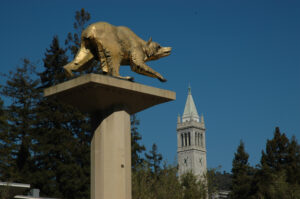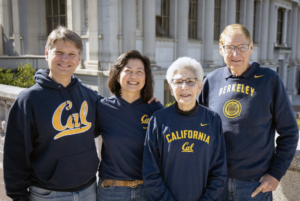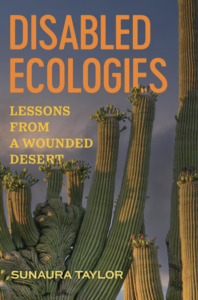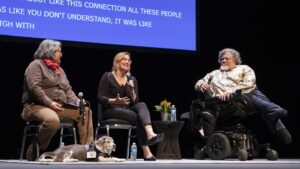The new DisC (Disability Studies at Cal) effort, launched originally in 2000-2001 by the joint recipients of the 2000 Presidential Chair in Undergraduate Education, represents an exciting new direction for the Berkeley campus. A growing group of over 43 faculty board members is working to establish a cluster of undergraduate courses in this emerging interdisciplinary field. A disability studies emphasis in the American Studies major was approved in Spring 2001. Later on, the Disability Studies minor program, through Undergraduate and Interdisciplinary Studies, was approved. A five-year post-doctoral program, the Ed Roberts Post-Doctoral Fellowships in Disability Studies, funded by the National Institute for Disability Research and Rehabilitation and run through the Institute for Urban and Regional Development, is in its fourth year in 2005-2006.
Location, location, location
Berkeley is particularly suited for a disability studies program. The Deaf-Blind school, founded at the turn of the century, was the principal school in the West developing new approaches to educating those with hearing and speech impairments and spawning leaders for those communities. The Cowell Hospital program was one of the first programs in the nation to bring people with significant disabilities to campus for undergraduate education.
The Center for Independent Living brought students and those in the community with disabilities together for ongoing service provision and advocacy; it was the model for the first national legislation funding such centers. The national and international disability movement was heavily influenced by Berkeley disability organizations.





